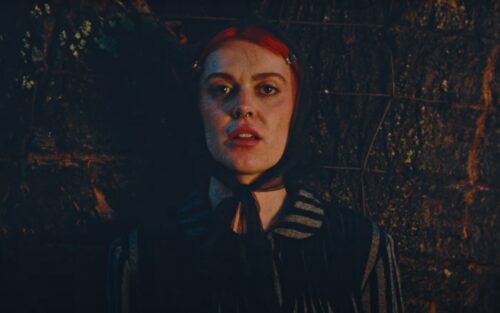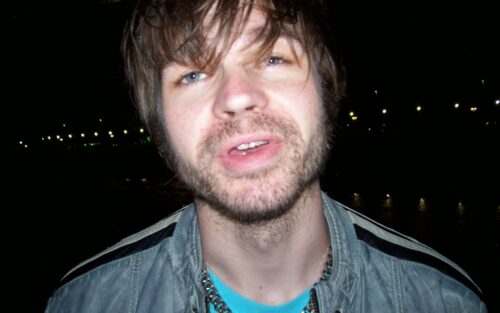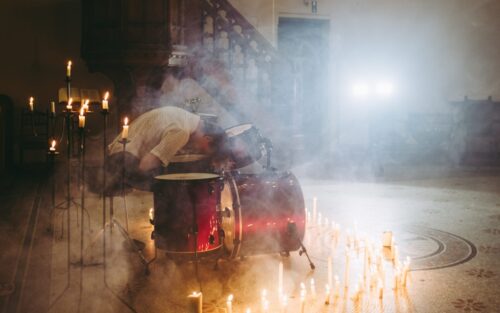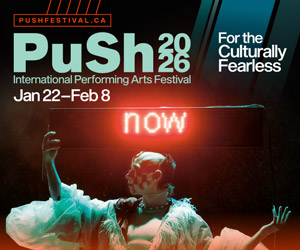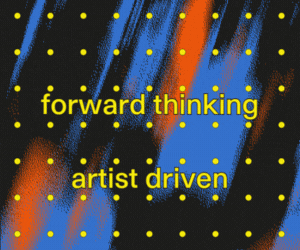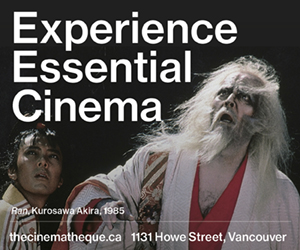Unearthing Nosferatu’s Experimental Sounds From Beyond the Grave
Composer Robin Carolan talks about his latest epic haunting score.
By Stephan Boissonneault
- Published on
“From the beginning, when Rob (Eggers) and I spoke, we knew we wanted the music to be scary, but also romantic, because Nosferatu is, in a lot of ways, a fucked up love story,” Carolan says from behind a wall that looks like it comes from a mid-century tavern.
The plot of Eggers’ Nosferatu centres around the German town of Wisborg, the relationship between young newlyweds Ellen (Lily-Rose Depp) and Thomas Hutter (Nicholas Hoult), and their supernatural – and sometimes, physical – battles with the malignant vampyre and master of “devourance,” Count Orlok (Bill Skarsgård). Much like the classic tale, Orlok only makes a few brief appearances throughout the film, but Carolan and Eggers decided early on that they wanted his presence to be felt from beginning to end.
“We knew we wanted the music to be scary, but also romantic, because Nosferatu is, in a lot of ways, a fucked up love story.”
— Robin Carolan
To do this, one of the themes Carolan worked on was a spiral motif; a cascading melodic progression that converges to a central tone. Carolan pushed his string players to make their instruments “sound like they were in agony.” You can hear this agony during the track “I Know Him,” when Thomas first meets Orlok in his Transylvanian castle near an imposing fireplace. In the middle of the track, the strings begin to bend and screech atonally like a wall of rats scratching and clawing, foreshadowing much more sinister events for the Hutters and the people of Wisborg.
“It got quite experimental, which was a lot of fun,” Carolan says. “I sat down with top-notch string players and told them to really go far out with it. For some players, what we did might feel anti-musical, because I needed the strings to wail and groan like human moans.”


Carolan also wanted all of the vocals in his score to sound “otherworldly.” He achieved this with constant vocal layering in the mix and making the choir’s vocal dynamics change throughout a specific piece. One minute they will sound very full, as if being sung outdoors, and the next they are whispers in your ear, almost like demented, foreboding spirits. Add on the recruitment of true vocal anomalies – like one of the nation’s lowest voices – and the picture is completed.
“We brought in this guy, Adrian Peacock, who is one of the only basso profundos in the UK and can do incredible things with his voice where it doesn’t even sound human.”
The language sung in Nosferatu’s score may sound like Latin, but it is Dacian, a dead language that predates the Romanian empire and is specific to the region of the Carpathian Mountains, where Orlok’s castle lies.
“Here’s the thing that separates Rob’s input from other directors,” Carolan says. “Most people think Orlok is speaking Romanian in the film and most people would have had the choir sing in Romanian because it’s easier. But Rob’s backstory has Orlok as this super ancient noble that speaks in a forgotten tongue. So it had to be Dacian and the choir had to sing in Dacian. It’s these little details that really make the greater whole of his films.”
To get into the Nosferatu headspace, together with Eggers, Carolan made several eclectic playlists, sometimes days in length, featuring 20th-century composers like Béla Bartók and Franz Liszt, but also more modern experimental artists like Coil, Burial, and even the indie synth-pop artist, Sky Ferreira.
“There is one Sky Ferreira track called ‘Downhill Lullaby,’ which is kind of like a dark pop track, but I don’t know, I became quite obsessed with it,” Carolan says. “It has like those dark sexy strings, but it’s also kind of fucked, and it really influenced how I tackled some of the scenes early on.”

This wasn’t the first time Carolan worked with Eggers. The two were actually friends before working together on films professionally. Carolan also worked in tandem with Sebastian Gainsborough (who makes music under the moniker Vessel) to create the score for Eggers’ bloody Viking epic, The Northman. That was the first time Carolan made music for the screen, something he calls his “baptism by fire.”
“The Northman was set like a thousand years ago, so I had to do a huge amount of research into weird, archaic Viking instruments and the score had to be rough and raw. Rob wanted it to sound ‘caked in blood and mud,’ so it’s not very enjoyable to listen to at times and it was very tough to make because it was very pummeling.”
This shift from the ragged and broken nature of The Northman score to the anxiety-inducing yet more melodic and sensual Nosferatu score was incredibly satisfying for Carolan, leading him to construct one of his favourite pieces of music he’s ever created: “Daybreak,” Nosferatu’s majestic eight-minute musical denouement.
“I love that track and I put everything I had into it,” Carolan says. “It’s a collision of the Ellen theme and Orlok theme interweaving with one another and a lot is going on in those last 10 minutes, so emotions are constantly shifting and being smashed together. So the music becomes very symphonic with the orchestra giving it their all.”
This orchestral flourish throughout Nosferatu is something Carolan admits he’s been missing when it comes to modern horror scores. “I probably shouldn’t be saying this, but I’m really happy we are leaving that sort of ‘80s, synth-wavy, John Carpenter vibe,” he says. “Carpenter’s films and scores are incredible, but it seems like tons of modern horror films have been like ‘Oh, we’re doing a horror score, bring on the synth.’”
Although, he says that within the last few years, it seems composers are getting more experimental. “It’s hard to reinvent the wheel with horror scores because so much good stuff has already been done. I mean, The Shining has already been done, so I say make way for experimentation.”
By Stephan Boissonneault
Nate Amos revisits a decade of stray ideas and turns them into his most compelling record yet.
By Khagan Aslanov
Mike Wallace’s electro-punk project premieres the hypnotic, percussion-driven video for "Certain Days."

